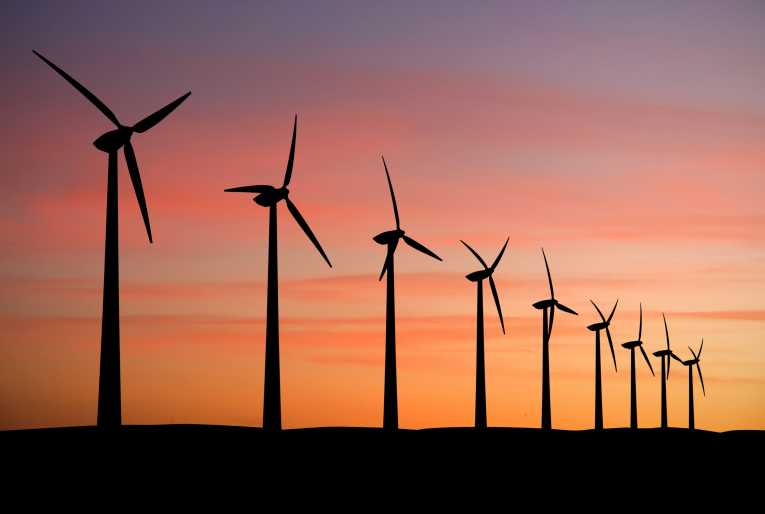The new chair of the American Wind Energy Association is calling for more consistency at policy level to develop the wind sector. Does it point to a change in how government sees wind energy in the US?
Windfarm developers and campaigners in Wisconsin are blaming a hostile business environment for the intermission in the development of three major projects in the state. With a conservative estimate of a $600 million investment and a potential to create 1, 100 jobs as well as helping the state reach its energy targets, campaigners are citing a sea-change in attitude at grass-roots political level against green energy.
Campaigners claim new Governor, Republican Scott Walker has, since January this year, brought in six pieces of legislation that weaken the state's environmental law. This include wetlands protection, a weakening of clean water rules, a reduction in state funding for recycling, a conclusion for the office of Energy Independence and a removal of a loan and grant system that encourages companies to be energy efficient. After two years in the making, wind regulations have been scrapped with proposals of a more restrictive set being developed by the Public Service Commission.
The policy is up in the air and for the developers of windfarms in Calumet, Brown and Green Lake this means their projects have stalled. Dan Rustowicz is from Minnesota's Redwind Consultancy who are trying to develop a windfarm in Buffalo County. He told the Wisconsin State Journal that the situation is damaging the project.
"The uncertainty is killing us. It's a shame because Wisconsin has good wind. But we have other options. If you don't have the political support here, why try and push that rope?"
Democrats in the state say the Republicans have a corporate mindset and believe Wisconsin's environmental policy is being taken back a generation. However Governor Walker says they are trying to operate in a more balanced way.
"Business and environment can go hand-in-hand," Walker says. "In the past, some pushed radical policies at the expense of jobs. I believe we can both conserve natural resources and promote economic prosperity."
In neighbouring state Minnesota a similar row is brewing over a proposal for a $179 million 78 megawatt wind project of 50 turbines across 32,000 acres of farmland. The Goodhue Wind Project is being developed by the Mesa Power Group. 18 months ago they applied for site permits but were surprised when, a year later, Goodhue County brought in a new rule banning wind turbines within 10 rotor diameters of non-participating neighbouring properties. It is contrary to Minnesota state law which includes a setback of 750 to 1,500 feet. County boards hold responsibility for wind applications and can grant permits on projects less than 25 megawatts but have to follow strict guidelines from the utilities commission.
The developers behind the project, which they claim will bring power to 23,000 households and bring the state closer to its goal of generating 25% of its energy via green techniques by 2025 as well as bringing it around $30 million in taxes and payments to landowners, say the rule threatens to destabilise the whole endeavour.
Concerns at the grass roots level come from worries over the impact on property values, noise, potential loss of sleep as well as moving shadows caused by the turbines. Those in favour say the concerns are overblown arguing wind energy is good policy at state level.
At national level, continued uncertainty and inconsistent polices need to be concluded, say campaigners and environment groups. This week's senate vote to end subsidies for ethanol has left campaigners worried the renewables sector is next, that tax credits and deductions will be scrapped in favour of the Republican austerity measure to reduce the deficit.
The American Wind Energy Association last month voiced its concern in Washington over "overly burdensome standards" being imposed on wind energy projects. Citing a specific example by wildlife groups over offshore wind farms they called for consistent and long term federal policies to support the deployment of renewable energy.
The new chair of the Board, Ned Hall is an Executive Vice Presidents and Regional president for North America and Chairman of Global Wind Generation and Energy Storage, a global utility that generates electricity in 29 countries.
"Having contributed 35 percent of all new electricity generating capacity since 2007, the U.S. wind industry is generating electricity and economic development alike in the face of both a challenging economic climate and, more importantly, policy instability that makes for an extremely difficult business environment,"
"The wind industry is doing its part to provide America with clean, affordable, homegrown energy -while simultaneously creating jobs and generating revenue for communities small and large, rural and urban - but it can do so much more," Hall said. "Wind energy simply needs the same stable policy signals under which other industries operate."
The US Department of Energy cites research to make turbines more efficient across six projects in four states. Valued at $7.5million the project is developing the next generation of wind turbines. Yet for the industry to feel more secure and broker deals they will need more than investment to convince policy-makers at a local level.
Top Image Credit: © TebNad










